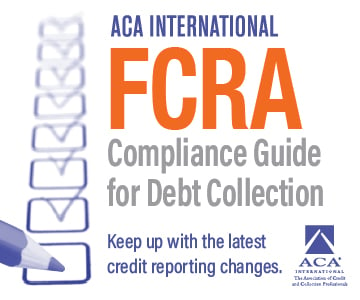 Several groups argue that the bureau’s enforcement actions, filed while using a funding source the 5th Circuit court has deemed unconstitutional, qualify them to be dismissed.
Several groups argue that the bureau’s enforcement actions, filed while using a funding source the 5th Circuit court has deemed unconstitutional, qualify them to be dismissed.
10/26/2022 12:00 P.M.
5 minute read
Since the Consumer Financial Protection Bureau’s funding structure through the Federal Reserve was deemed unconstitutional by the U.S. Court of Appeals for the 5th Circuit, groups with pending enforcement actions from the bureau are seeking dismissal, and one state official has urged the bureau to follow the court’s ruling.
The court said the funding through the Federal Reserve rather than congressional appropriations violates the U.S. Constitution’s separation of powers, ACA International previously reported.
“Even among self-funded agencies, the [b]ureau is unique,” U.S. Circuit Judge Cory Wilson wrote in the decision of the case brought by the Community Financial Services Association of America (CFSA) against the bureau and director Rohit Chopra. “The [b]ureau’s perpetual self-directed, double-insulated funding structure goes a significant step further than that enjoyed by the other agencies on offer.”
CFSA and Consumer Service Alliance of Texas challenged the validity of the CFPB’s 2017 payday lending rule when they filed suit.
According to court documents, the plaintiffs “contend that in promulgating that rule, the [b]ureau acted arbitrarily and capriciously and exceeded its statutory authority. They also contend that the [b]ureau is unconstitutionally structured, challenging the [b]ureau [d]irector’s insulation from removal, Congress’s broad delegation of authority to the [b]ureau, and the [b]ureau’s unique, double-insulated funding mechanism. The district court rejected these arguments.”
The three-judge panel wrote in response:
“We agree that, for the most part, the [p]laintiffs’ claims miss their mark. But one arrow has found its target: Congress’s decision to abdicate its appropriations power under the Constitution, i.e., to cede its power of the purse to the [b]ureau, violates the Constitution’s structural separation of powers. We thus reverse the judgment of the district court, render judgment in favor of the [p]laintiffs, and vacate the [b]ureau’s 2017 Payday Lending Rule.”
In other words, “while it stands, this holding renders all CFPB actions from inception of the Bureau, as well as its current activities, vulnerable to challenge—because like the 2017 Payday Lending Rule, none of the CFPB’s actions from rulemaking to enforcement could have occurred absent the unconstitutional funding,” ACA member firm Troutman Pepper reports.
What’s Next?
In designing the CFPB, Congress took unprecedented steps to insulate the bureau against control by the elected branches, said Leah Dempsey, ACA’s lobbyist and shareholder at Brownstein Hyatt Farber Schreck.
“The 5th Circuit decision most certainly will prompt additional appellate review, either by the en banc court or the Supreme Court. The CFPB could petition the 5th Circuit for a rehearing en banc, but, considering 12 of the 16 active judges on the 5th Circuit were appointed by Republican presidents and seven of these Republican-appointed judges have now indicated they agree the CFPB is unconstitutionally funded, it is unlikely en banc review would change the result of the panel decision. That leaves petitioning the Supreme Court for review, and a likely request to stay the 5th Circuit’s mandate while the Supreme Court considers CFPB’s petition,” the Brownstein Hyatt Farber Schreck team stated in a client alert.
While the CFPB could appeal the decision for a hearing or ask for a stay while the legal matters play out, Bloomberg Law reports the CFPB released a statement that it “will continue to carry out its statutory mission enforcing federal law and protecting Americans from predatory financial institutions. Illegal practices are still illegal, and the CFPB is going to hold companies accountable when they break the law.”
Enforcement Action Challenges
Meanwhile, the defendants in the CFPB enforcement actions have filed for dismissal, using the 5th Circuit’s decision as reasoning, ACA member firm Ballard Spahr reports.
In Illinois, TransUnion is challenging the bureau’s allegations in CFPB v. TransUnion that it violated a consent order from 2017. TransUnion argues that the CFPB’s consent order cannot be enforced because it “used unappropriated funds to negotiate and prepare it,” according to the report.
In a Utah case, CFPB v. Progrexion Marketing, Inc., the defendants had already referenced the issue of the CFPB’s funding structure in a motion to dismiss and now seek to reopen proceedings on the congressional appropriations clause.
A 9th Circuit case the CFPB is appealing now includes a Notice of Supplemental Authority, where the defendants claim that with the 5th Circuit’s ruling, the 9th Circuit “should reverse the district court’s civil penalty award and dismiss the CFPB’s enforcement action.”
In CFPB v. Nationwide Biweekly Administration, a California district court fined the defendants a $7.9 million civil penalty for reportedly using misleading marketing practices but did not agree to restitution the CFPB requested, according to Ballard Spahr.
At the state level, West Virginia Attorney General Patrick Morrisey sent a letter to CFPB Director Rohit Chopra and included several House and Senate committees, calling on the bureau to reassess its future plans and review its present regulations given the 5th Circuit’s decision.
“Along with other [s]tates, West Virginia has long argued that various aspects of the Consumer Financial Protection Bureau’s structure present serious constitutional concern,” Morrisey writes, adding “throughout much of its existence, the [b]ureau has acted without meaningful oversight from either the [p]resident or Congress.”
The attorney general asked for the bureau to respond to these questions by Nov. 1:
- Does the agency believe that any of the regulations that it promulgated under the unconstitutional funding scheme remain in effect? If so, which ones—and why? Similarly, how does the decision affect past enforcement actions?
- What plans will the bureau undertake to comply with the ruling? How will its ongoing enforcement efforts be affected? How will this change affect any promulgation of regulations? How will bank supervision continue, if at all?
ACA’s Take
ACA has long advocated for the bureau’s funding to be through the congressional appropriations process.
“Congress’s ability to have control over the purse strings of a federal agency is an essential feature of our constitutional structure that ensures oversight over otherwise unaccountable agencies,” Dempsey said. “The CFPB, particularly in recent months when it has refused to engage in transparent policymaking that takes into account any views other than a handful of people in Washington, D.C., has been a case study demonstrating why the lack of accountability surrounding this agency does not work, and was not contemplated in the Constitution.”
Related Content from ACA International:
ACA International Responds to Court Decision on CFPB Funding Structure
If you have executive leadership updates or other member news to share with ACA, contact our communications department at [email protected]. View our publications page for more information and our news submission guidelines here.














